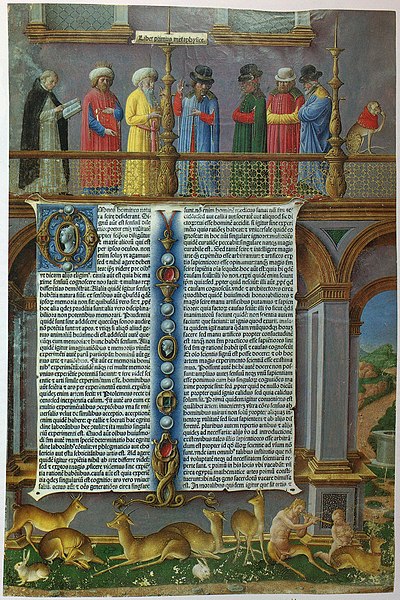Philosophy of religion is "the philosophical examination of the central themes and concepts involved in religious traditions". Philosophical discussions on such topics date from ancient times, and appear in the earliest known texts concerning philosophy. The field is related to many other branches of philosophy, including metaphysics, epistemology, logic and ethics.
Pythagoreans Celebrate the Sunrise (1869) by Fyodor Bronnikov. Pythagoreanism is one example of a Greek philosophy that also included religious elements.
Aquinas considered five arguments for the existence of God, widely known as the quinque viae (Five Ways).
The Buddhist Vasubandhu argued against Hindu creator god views and for an impersonal conception of absolute reality that has been described as a form of Idealism.
The Blind men and an elephant is a parable widely used in Buddhism and Jainism to illustrate the dangers of dogmatic religious belief
Metaphysics is the branch of philosophy that examines the basic structure of reality. It is often characterized as first philosophy, implying that it is more fundamental than other forms of philosophical inquiry. Metaphysics is traditionally seen as the study of mind-independent features of the world, but some modern theorists understand it as an inquiry into the conceptual schemes that underlie human thought and experience.
The beginning of Aristotle's Metaphysics, one of the foundational texts of the discipline
Immanuel Kant conceived critical metaphysics as the study of the principles underlying all human thought and experience.
David Hume criticized metaphysicians for trying to arrive at knowledge outside the field of sensory experience.
Boethius's theory of universals influenced many subsequent metaphysicians.








